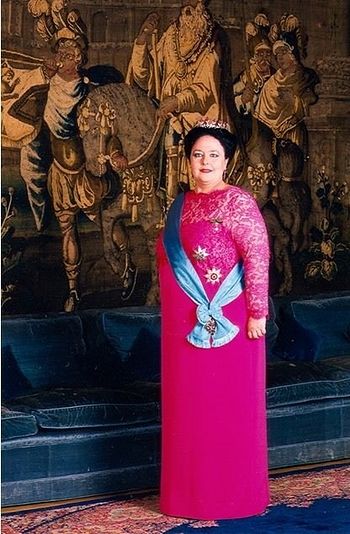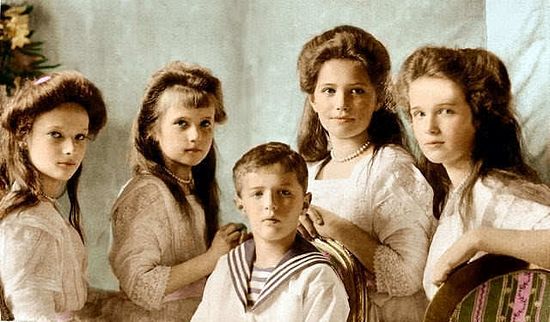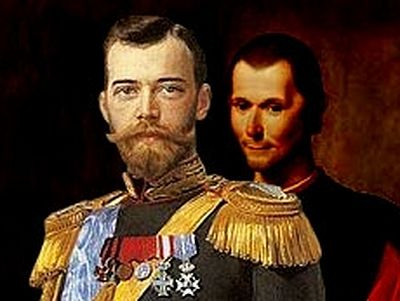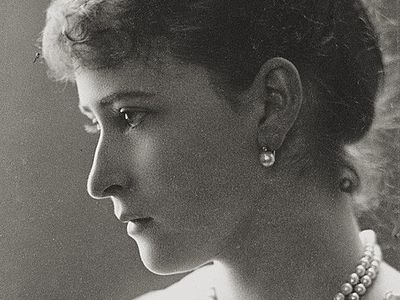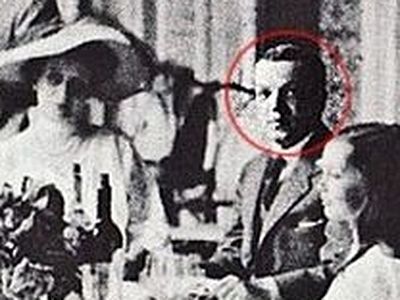Source: Fort Russ
Deputies believe that in a crisis the return of the Imperial dynasty will become a symbol of revival of spiritual power of the country.
Members of the house of Romanov's were offered to return to Russia. A deputy of legislative assembly of Leningrad region, Vladimir Petrov, sent the appropriate address to the official members of the Romanov family, permanently residing abroad, – Duchess Maria Vladimirovna in Spain and Prince Dmitry Romanovich in Denmark (copies of the letters were obtained by "Izvestia"). Deputies intend to develop a draft law establishing a special status of members of the Royal family and providing for their return. In particular, the official residence of the Romanov's could become one of the abandoned palaces in St. Petersburg or Crimea.
"Your Imperial Highness Grand Duchess Maria Vladimirovna! — the deputy addressed the head of the Imperial house of Romanov. — Throughout the history of their reign, the Imperial dynasty of the Romanov's was one of the foundations of Russian statehood... Today, a difficult process of restoring Russia's greatness and its return to world influence is underway. I am sure that at this crucial historic moment, members of the Imperial House of Romanov can't stay away from processes taking place in Russia".
Petrov is confident that "the return of the descendants of the last Russian Tsar to their historic homeland will contribute to the smoothing of political contradictions in the country, remaining from the time of the October revolution, and will become a symbol of revival of the spiritual power of the peoples of Russia".
The MP believes that the Romanovs could participate in public ceremonies.
"Descendants of the Royal family can play an important symbolic role in the life of Russian society . As in many European countries, the Romanovs could become a symbol of preservation of traditions and national culture," - the statement says.
The legislative assembly of the Leningrad region is planning to develop a draft law "On special status of members of the Royal family" in the near future, to create conditions for the return of the descendants of the Romanovs. For example, the official residence of the Romanovs in Russia is proposed to be one of the palaces in the suburbs of St. Petersburg or Crimea.
— To this day many beautiful Royal palaces in the suburbs are empty or misused. I think if one of these palaces in Leningrad region would be used as the official residence of the Royal family, it will only be for the better, - says Petrov.
According to him, the residence can be arranged in Ropshinsky, Pavlovsky palaces near St. Petersburg or in Livadia Palace in Crimea.
The Director of the office of the head of Russian Imperial house of Romanov, Alexander Zakatov, said that representatives of the House are ready to move to Russia.
— The Imperial house has repeatedly stated that it is ready to return to Russia for permanent residence, our representatives often visit Russia and strive to move, - he says. — Duchess Maria Vladimirovna could return at any moment as a private person, but she is the head of the Imperial house and has responsibility before the ancestors, and her return must be appropriate. She does not claim any property nor political powers and privileges, but wants that, as in most countries of the world, the Imperial house could be a historical institution and part of historical heritage. It is a cultural recognition, but it must be expressed through a legal instrument. Only then will the Imperial house move. Currently in Russia there is not even a place of residence for the members of the house.
Zakatov also fears that the Romanovs will be drawn into a political game in Russia.
— The Imperial house is not involved in any political struggle. There are some circles which would like its involvement, such as the monarchists or the opposition. Therefore if a return occurs without a legal status, then there is ground for political speculation, - he says.
In addition, according to the director of the office, the return of all the Romanovs may even harm Russia.
— Around the world, there are thousands or even tens of thousands of descendants who are not members of the Imperial house. This is a wide circle, and it is unclear whether Russia will benefit from them. There are those who long ago broke away from the Imperial house, they don't speak Russian, and profess another religion. The status of the House of Romanov is based on the dynastic law. Family law, established by Emperor Paul in 1797, always indicates a person with rights and duties of the head of the house, those who are members, who has what titles, etc.
Note that now there are two main branches of the Romanov family — Kirillovichs and Nikolaevichs. The first call themselves "The Imperial house in exile", headed by Maria Vladimirovna, the second is the association of descendants of the house of Romanov, headed by Prince Nicholas Romanovich. According to the professor of the School of Historical Sciences of the Higher School of Economics, Oleg Budnitskiy, the legitimate heirs to the throne are the Kirillovichs.
— After the murder of the Royal family, the legitimate heir, according to the law of succession, became Duke Kirill Vladimirovich, who at the time lived in Germany. He proclaimed himself "Emperor in exile" in 1924. But he was not popular at the house of the Romanovs, although genealogically he was the heir. From him stemmed the branch of the Kirillovichs, who are the heirs to the Russian throne, - says the historian. — After the revolution, the Romanovs ended up in different countries — Germany, France, England, Denmark, where today their descendants continue to live. In 1990's the idea about their return was popular. They often come and participate in events, they are welcomed at the high level.
The head of the Institute of Political Studies, Sergei Markov said that the return of the Romanovs in no way will affect the mood of citizens.
— In most countries the population has no respect for Imperial houses, with the exception of the UK and the Netherlands, - he says. — In Russia, the Romanovs are viewed as either innocent victims because of the execution by the Bolsheviks, or traitors, who in the critical years of the Tsarist monarchy behaved irresponsibly. Many believe that the abdication of Nicholas II led to the civil war.
